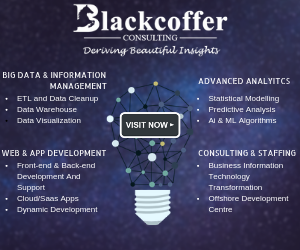Unlocking the Power of Windows Activators: A Comprehensive Guide
In today’s digital landscape, the term “Windows activator” often surfaces in discussions surrounding software licensing, digital rights management, and the broader implications of software piracy. This article delves into various aspects of Windows activators, examining their role in technology, the ethical considerations surrounding their use, and emerging trends in software licensing.
Understanding Windows Activators
A Windows activator is a tool used to bypass the activation process of Microsoft Windows operating systems. These tools can either be software-based applications or scripts designed to modify system files, allowing users to run Windows without a valid license key. While they serve the purpose of unlocking full functionality, their use raises significant ethical and legal questions.
How Windows Activators Work
Windows activators typically exploit vulnerabilities in Windows activation protocols. The most common types include:
- KMS Activators: These mimic a Key Management Service (KMS) server to activate Windows.
- HWID Activators: These generate a hardware ID to create a digital license based on the user’s hardware configuration.
- OEM Activation: These exploit the original equipment manufacturer (OEM) activation process.
While these methods can provide immediate benefits to the user, they often come with risks, such as malware infections and potential legal repercussions.
Current Trends in Software Licensing
The landscape of software licensing is evolving, with a notable shift toward subscription-based models. Companies like Microsoft are moving away from traditional one-time purchases to services that require ongoing payments. This transition influences user perspectives on software activation:
- Value for Money: Users are increasingly considering whether the ongoing costs of subscription services justify the benefits they receive.
- Accessibility: Subscription models can enhance accessibility for users who cannot afford a full license upfront.
- Legitimate Alternatives: The rise of cloud-based solutions and open-source software presents genuine alternatives to traditional Windows systems, reducing reliance on activators.
Ethical Considerations and Legal Implications
The use of Windows activators raises complex ethical questions. While some users argue that they provide access to technology for those who cannot afford it, others contend that they undermine the software industry and discourage innovation. Here are key points to consider:
- Intellectual Property Rights: Bypassing activation is a violation of software licensing agreements, infringing on intellectual property rights.
- Security Risks: Activators can expose systems to viruses and malware, leading to greater security vulnerabilities.
- Impact on Developers: Widespread use of activators can diminish revenue for software developers, impacting future development and support.
Cultural and Lifestyle Impacts
The accessibility of Windows activators also reflects broader cultural attitudes towards technology and ownership. In many regions, the high cost of software licenses contrasts sharply with average income levels, prompting users to seek alternative solutions. This scenario highlights a digital divide, where access to technology is unevenly distributed based on economic factors.
Innovation in Software Development
As the demand for legitimate software ownership grows, some companies are innovating to combat the use of activators. Microsoft, for instance, is enhancing its product authentication processes and developing more user-friendly licensing options. Furthermore, initiatives such as morethanwindows.biz aim to educate users on the importance of legitimate software use and the risks associated with pirated software.
Conclusion
Windows activators serve as a focal point in discussions about software licensing, accessibility, and ethical computing. While they may offer immediate benefits to users, the long-term implications of their use pose significant challenges to the software industry and society at large. As technology continues to evolve, so too must our understanding of these tools and their impact on our digital lives.



